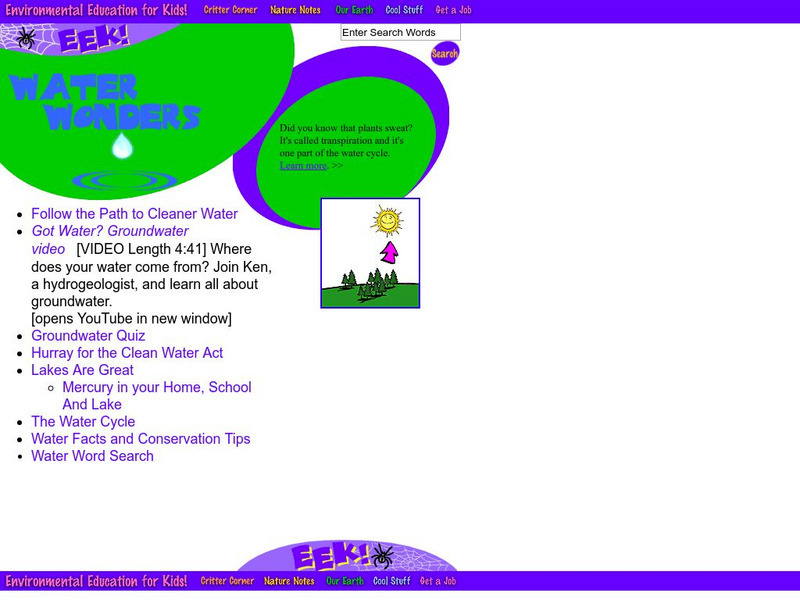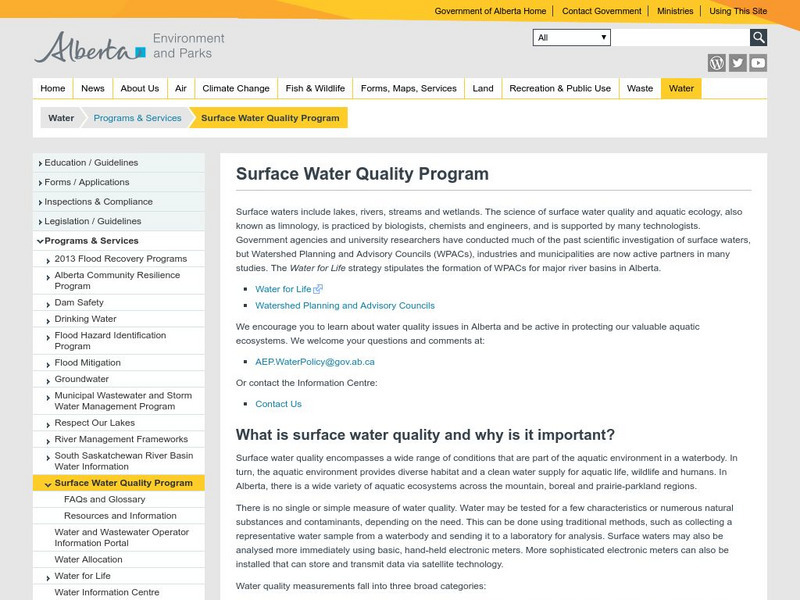TeachEngineering
Teach Engineering: Environmental Engineering
In this unit, students explore the various roles of environmental engineers, including: environmental cleanup, water quality, groundwater resources, surface water and groundwater flow, water contamination, waste disposal and air...
TeachEngineering
Teach Engineering: Ocean Water Desalination
Students learn about the techniques engineers have developed for changing ocean water into drinking water, including thermal and membrane desalination. They begin by reviewing the components of the natural water cycle. They see how...
TeachEngineering
Teach Engineering: Test and Treat Before You Drink
Students learn about water quality testing and basic water treatment processes and technology options. Biological, physical and chemical treatment processes are addressed, as well as physical and biological water quality testing,...
TeachEngineering
Teach Engineering: Flocculants: The First Step to Cleaner Water!
Students experience firsthand one of the most common water treatment types in the industry today, flocculants. They learn how the amount of suspended solids in water is measured using the basic properties of matter and light. In...
Other
League of Women Voters
This resource provides information about important issues, relating towards female voters.
Other
Project Wet Water Education for Teachers
Non-profit education program dedicated to increasing awareness of water resources through classroom activities and hands-on experience. Lesson plans designed for K-12 students. Site available in English, Spanish, and French.
TeachEngineering
Teach Engineering: A Matter of Leaching
Students leach organic matter from soil to create a water sample with high dissolved organic matter content (DOM), and then make filters to see if the DOM can be removed. They experience the difficulties of removing DOM from water, and...
TeachEngineering
Teach Engineering: All About Water!
Students learn about the differences between types of water (surface and ground), as well as the differences between streams, rivers and lakes. Then, they learn about dissolved organic matter (DOM), and the role it plays in identifying...
TeachEngineering
Teach Engineering: Human Water Cycle
Learners learn about the human water cycle, or how humans impact the water cycle by settling down in civilizations. Specifically, they learn how people obtain, use and dispose of water. Students also learn about shortages of treated,...
US Environmental Protection Agency
Epa: Ground Water and Drinking Water
Learn about the safety of drinking water, find information on agencies that oversee our water, and gain access to the current drinking water standards and regulations.
Center for Innovation in Engineering and Science Education, Stevens Institute of Technology
Ciese: Down the Drain Project
Teachers can start this project at any time and no registration is required. Students collect data about water usage for themselves, their homes and their class. They analyze it, make predictions about it, and submit the data to the...
Other
Safe Water Science: Lesson Downloads
A collection of downloadable, ready-to-use lessons and student worksheets aimed to raise awareness of the need for safe drinking water. Lessons are investigative in nature and utilize inexpensive materials that can be purchased at most...
US Environmental Protection Agency
Epa: The Water Sourcebooks [Pdf]
This is online resource is for teachers of all grades. The Water Sourcebook contains activities grouped according to grade level. Detailed lesson plans are provided along with glossary and fact sheets.
Utah State Office of Education
Utah State Office of Education: Water's Importance to Life on Earth
A variety of activities to help students explore the relationship of water to life on Earth. Provides an opportunity to see how ocean levels have changed over time and what effect that can have on living things.
Environmental Education for Kids
Eek!: Water Wonders
This site from the Environmental Education for Kids contains colorful and detailed information on water resources. Site covers fascinating tips and facts, as well as engaging quizzes on the wonderful world of water. Best suited for...
US Environmental Protection Agency
Epa: Enviro Mapper Store Front
Lets kids create their own maps, down to the square mile, anywhere in America, choosing various features from water discharges to hazardous waste to roads.
PBS
Pbs Learning Media: Cost of Water
A slideshow explaining and illustrating the cost of water in plastic bottles compared to water straight from the tap. Find the differences. Which one is more expensive?
American Institute of Biological Sciences
Action Bioscience: International Water Facility
Find out what can be done to clean up the world's water sources to provide safe drinking water because at least 35% of the world does not have it available to them and only 3% of the world's water is fresh.
WebMD
Medicine Net: Dehydration: How to Recognize and Prevent Its Effects
Learn what can cause dehydration, and recognize the signs and symptoms of dehydration. This website also has a section on how dehydration affects children.
Other
Relief Web: Middle East and North African Countries Dominate Water Security Risk
A 2011 article about the fear that the lack of stable supplies would lead to oil price hikes and regional unrest.
Other
I thyroid.com: Fluorine
This site provides information about fluoridated drinking water and some of the issues that surround it.
Other
Moms Team: Fluid Guidelines for Young Athletes
Athletes of all ages should drink fluids before, during, and after physical activity to ensure that they don't become dehydrated. Learn how many ounces of water and sports drink you should consume to keep yourself hydrated when you...
Other
Garden Club of America: Drinking Water Safety [Pdf]
An information page on understanding drinking water safety. It covers legislation, contaminants, private wells, water testing, water filters, and boiling water.
Government of Alberta
Alberta Environment: Focus on Water Quality
This article discusses the importance of water in our lives, the necessity for clean water, what threatens it, and how we can act to help protect the quality of our water.


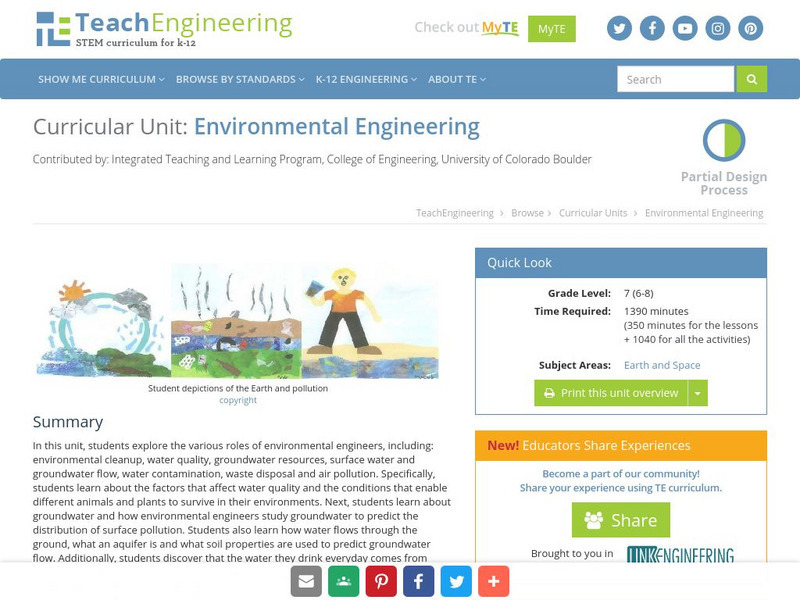



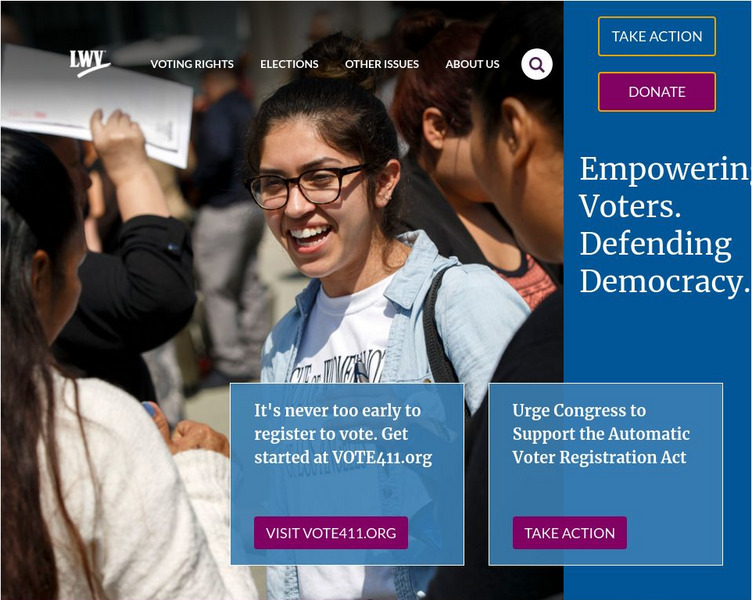
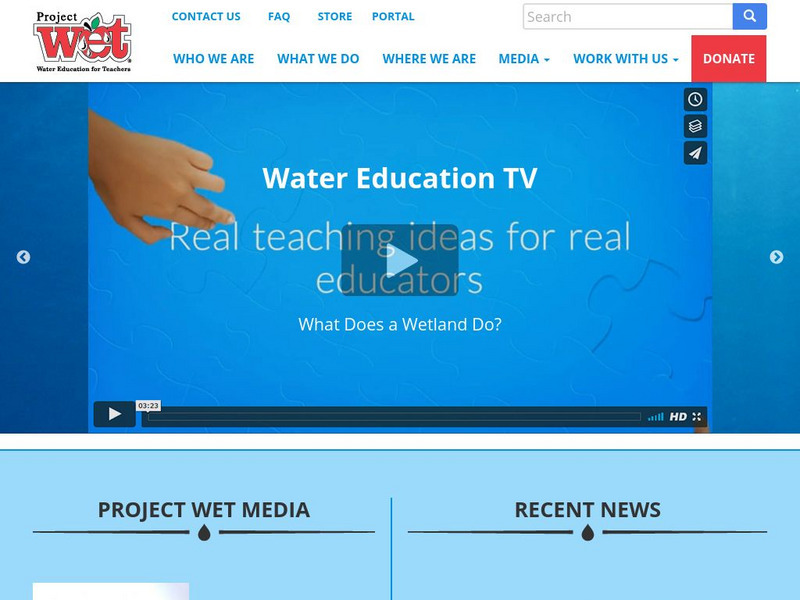



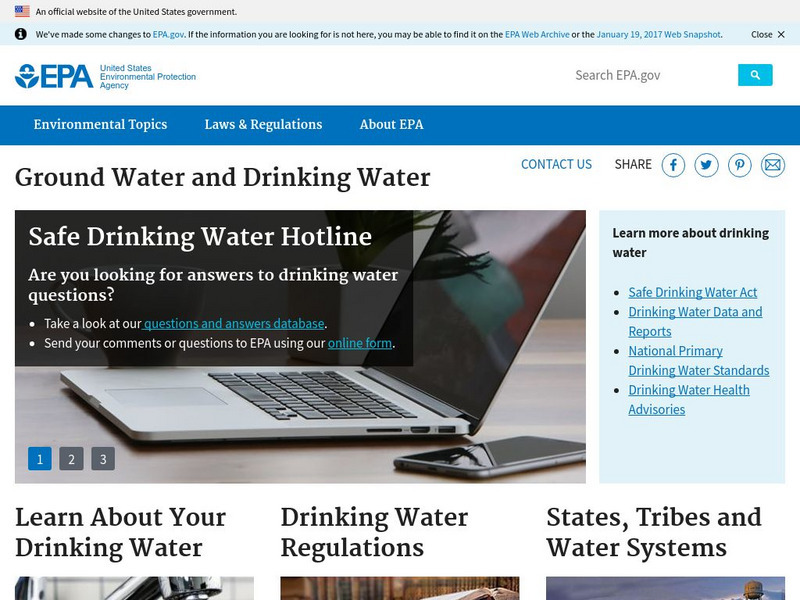
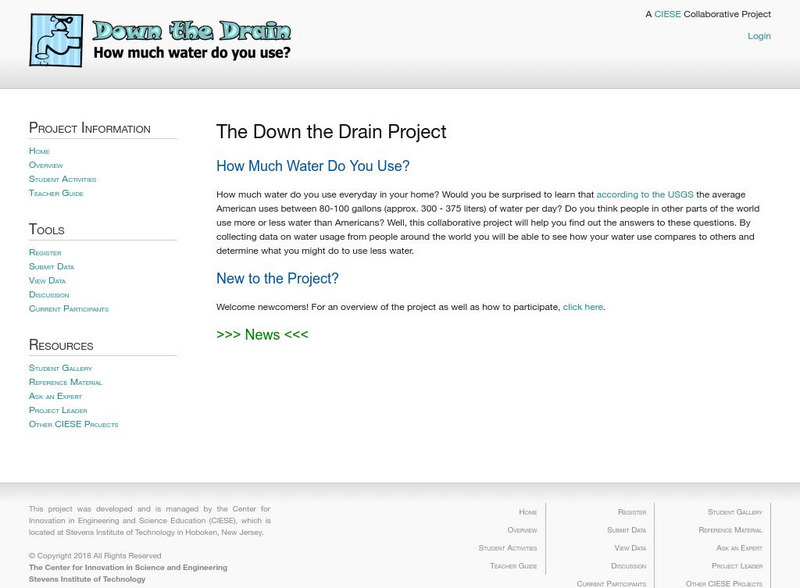

![Epa: The Water Sourcebooks [Pdf] Lesson Plan Epa: The Water Sourcebooks [Pdf] Lesson Plan](https://content.lessonplanet.com/knovation/original/438669-a5df3fb4e6ba6a238d3d8ad01b4a02a3.jpg?1661258064)
